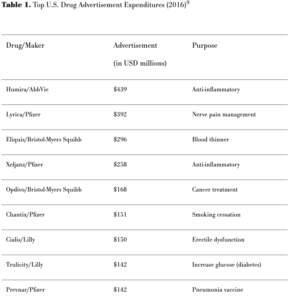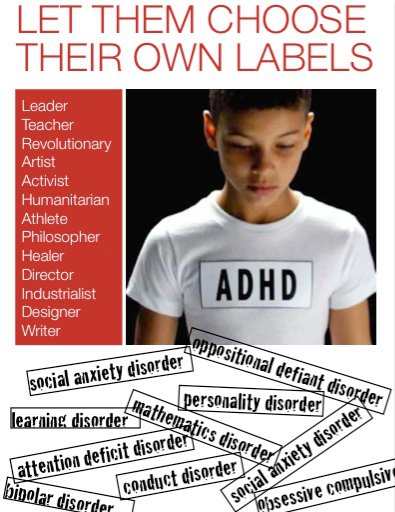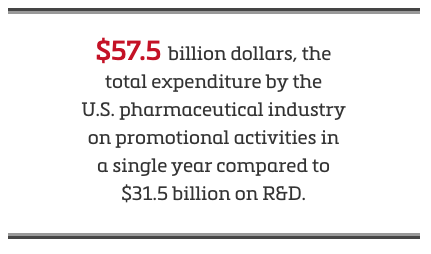… and the Soul


You’ve been lied to.
For the last 20 or 30 years, you’ve been told that marijuana is safe, that it’s harmless, that it’s “an herb”. It simply isn’t true.
Smokescreen is an impassioned, intelligent plea to look beyond the smokescreen that the vested interests have thrown up. The book details how billionaires such as George Soros and those of his ilk have spent and continue to spend enormous sums of money to entice younger and younger people to try marijuana, in all its various forms.
how billionaires such as George Soros and those of his ilk have spent and continue to spend enormous sums of money to entice younger and younger people to try marijuana, in all its various forms.
[read more]
Sabet leads us through the serpentine campaign to convince Americans of the wonders of pot consumption. He shows how marijuana lobbyists with almost endless amounts of money have been able to bribe and sway politicians and others into ignoring the irrefutable facts about marijuana and declare that pot is a panacea, that it will “benefit all”. What motivation do these vested interests have in this burgeoning cannabis industry? Join Keven Sabet as he “follows the money”.
Kevin Sabet is the ‘go-to’ guy for those fighting the legalization of marijuana during the last couple of US administrations. The book is loaded with verifiable information, facts and references. He debunks any idea that marijuana today in any way compares to that of the drug from the 60s and 70s. Sabet also relates numerous anecdotes that reveal how passionately he is devoted to protecting the health of children in the world today. He really cares. This book is a must-read for anyone nibbling at the edges of the falsehood-strewn bait that the power-elite vested interests have cast.[/read]
#marijuana #kevinasabet #smokescreen
Psychiatry’s handbook, the DSM (Diagnostic and Statistical Manual of Mental Disorders) has some really weird stuff in it. It, at least, should be questioned. Not a lot of science here.
Great article breaking down some of the disorders that are listed by T.J. Nelson in his blog post: Weird Stuff in the DSM-5
“What is going on? Some of these are mental disorders and some are neurological diseases. It looks like a mishmash of stuff selected at random. What, if anything, are the criteria for including something in the DSM?”
[read more]
In his book ‘A Dose of Sanity’ Dr. Sydney Walker Jr. tells how the so called diseases in the DSM are voted upon as to whether or not they be included in the book each year. It is not a matter of the disease being verified as an actual sickness. This problem is largely due to the fact that there is no evidence or test to show any of the mental disorders listed actually have a physical basis.
Dr. Thomas Szasz:
“The ostensible validity of the DSM is reinforced by psychiatry’s claim that mental illnesses are brain diseases—a claim supposedly based on recent discoveries in neuroscience, made possible by imaging techniques for diagnosis and pharmacological agents for treatment. This is not true. There are no objective diagnostic tests to confirm or disconfirm the diagnosis of depression; the diagnosis can and must be made solely on the basis of the patient’s appearance and behavior and the reports of others about his behavior.”
Another great article in Psychology Today from August 2019.
https://www.psychologytoday.com/us/blog/in-control/201908/mental-health-diagnosis-just-say-no
Mental Health Diagnosis: Just Say No! by Timothy A Carey Ph.D.
“In DSM-IV, there is no assumption that each category of mental disorder is a completely discrete entity with absolute boundaries dividing it from other mental disorders or no mental disorder.” (APA, 2000, p. xxxi). So, the categories that DSM offers us do not have boundaries demarcating one disorder from another or, indeed, one disorder from no disorder. This is an extraordinary revelation. This means, according to the DSM, there is no assumption that the category “schizophrenia” has boundaries that separate it from other mental disorders or from not having schizophrenia.
That is a really weird statement from the authors of the DSM. They are essentially saying that they don’t know. Through the rest of the article Dr Carey shows, with excellent references that there exists no pathological basis for any of the ‘diseases’ listed in DSM-IV or DSM-V or any of the earlier issues.
Medical doctors and psychiatrists have been speaking out against these manuals for years. It seems that naming a difficulty that someone has gives them a reason for it to not be their fault or not be responsible for fixing it. Then here comes Big Pharma to the rescue with the drug of the week.
People get depressed. People have problems in life. Drugs rarely fix these issues.
Please question so called ‘science’. Ask your doctor questions about anything he or she may prescribe.
Do research into side effects. [/read]
#adhd #dsmV
How do drugs, both prescribed (legal) and street drugs affect your immune system? Long term side effects and short term side effects?
How does this affect the overall health of people in the USA and Canada. The United States of America comes 37th on a list of healthiest countries in the world. Behind many third world countries. Per capita, the USA spends more than any other country in the world on Health Care. What part do drugs play in this scenario?
According to Wallstreet.com:
"America makes up about 5% of the world’s population – but accounts for approximately 27 percent of the world’s drug overdose deaths, according to Vox. The culprit? Prescription opioids like Oxycontin, tramadol, methadone, morphine, fentanyl or Vicodin."
I was speaking to my son recently about vaccines. I said to him that there was some evidence that vaccines might adversely affect the immune system; that there may be a relationship with vaccines and the rapid increase of the incidence of autism over the last 30 years. He allowed for that but pointed out the whole co-relation/cause thing. He point out the increase of anti-depressants and anti-anxiety drugs, and the like, over the same period of time. He thought that these types of drugs could just as easily, or even more likely, be the cause. Part of the issue here is that the people that might do the testing or studies to establish cause/effect here appear to not want to know!
How many women took Ritalin growing up in 80s and 90s and then had children? Did Ritalin, and later drugs like Prozac, Zoloft and others, affect their immune systems and then the immune systems of their newborns? Studies have proven that even drugs like marijuana can lessen sperm count in men. What other reproductive issues can a drug like this cause?
Per the CDC:
“During 2015–2018, 13.2% of adults used antidepressants in the past 30 days (Figure 1). Use was higher among women (17.7%) than men (8.4%).”
This is huge! How many of these women were taking these drugs when they were pregnant? Or breast feeding? How are the immune systems of the babies affected by these drugs?
The use of pain relievers (legal) has at least doubled in the last 40 years. The intake of SSRIs doubled from 1998 to 2010.
Since 1990, 450,000 people have died from opioid overdoses. How many users are there that don’t die? This from both prescribed and street use of various opioids. How do these drugs affect one’s immune system? Short term? Long term?
I know people that eat Tylenol like candy. In both the USA and in the United Kingdom Tylenol is the biggest cause of liver failure.
“acetaminophen* overdose is the leading cause [of Acute liver failure] in the United States” NCBI Liver Failure
(*acetaminophen: an analgesic drug used to relieve mild or chronic pain and to reduce fever, often as an alternative to aspirin. Proprietary names include Tylenol.)
How does this extensive damage to the liver affect one’s immune system?
“The liver is a key, frontline immune tissue. Ideally positioned to detect pathogens entering the body via the gut, the liver appears designed to detect, capture, and clear bacteria, viruses, and macromolecules.” The Liver and Immune System
Other medicines can affect one’s liver and thus the immune system:
“Some drugs, such as statins** (used to treat high cholesterol levels), can increase the levels of liver enzymes and cause liver damage (usually minor) but no symptoms.”
Merck Liver Disorders
(**Statin: “any of a group of drugs that act to reduce levels of fats, including triglycerides and cholesterol, in the blood.”)
College and University students are known to use drugs like Ritalin and Adderall to help concentrate and stay awake to study.
These commonly used drugs such as Adderall can severely affect the health of the liver. Adderall is an amphetamine. This from an article at NCBI on amphetamines and the liver.
“More importantly, several amphetamines have been associated with clinically apparent and sometimes severe or even fatal instances of acute liver injury. These cases typically follow intravenous use, particularly when given in an excessive single dose. The synthetic amphetamine methylenedioxymetamphetamine (MDMA, but known familiarly as “ecstasy”) has been implicated in the largest number of cases, many of which were severe and led to acute liver failure and death.”
Much evidence has come to light over the last 20-30 years as to how antibiotics have affected the immune system. A necessary evil sometimes. The problem with antibiotics is that they kill good bacteria as well as bad.
From JAMA Pediatrics
“This study found that all commonly prescribed antibiotics during infancy are associated with subsequent diagnosis of allergic disease.
Administration of more than 1 class of antibiotic was associated with increased risk, most notably for asthma and allergic rhinitis. This association persisted even after adjusting for the total days of antibiotics supplied.” JAMA Pediatrics
So, ask your doctor questions. Your doctor is not infallible. Find out the short and long term affects of the drugs he prescribes. Do your own homework; it is pretty easy to find side effects of pretty much any drug online.
Street drugs, even marijuana, well, that’s a little trickier. Opioids, (Oxy for example), that you buy on the street will not likely have a list of ingredients, telling you how much fentanyl is in it. Even so called medical marijuana has been found to have mold which can shut down your liver. Caution your children on the use of study drugs such as Adderall and Ritalin. Instruct them on how these drugs can affect one’s immune system over a short or long period of time.
Good health is your best defence!
We put far too much faith in doctors. Doctors have become our gods. I’ve never been one to put trust in another for my well being. I know people my age that are taking a dozen or more drugs to keep them going. And perfectly healthy individuals that are not. What is the difference?
There is this inherent belief that ‘modern medicine’ extended the life span of people in our civilization. Looking a little more closely at the USA shows that it is likely one of the unhealthiest countries in the world even though they spend the most on health care per capita. I think it places 37th on the world stage in the list of healthiest to unhealthiest countries. There are several third world countries that rate much higher than the USA.
Is our trust misplaced?
Are doctors doing more harm than good? Let’s take a look:
Definition: Iatrogenic deaths: deaths caused by the medical field.
This definition has been around since at least some time in the 1940s.
Iatrogenic inpatient deaths in 2015 were 225,000 in the USA.
If one factors in: adverse drug reactions, medical error, bedsores, infection, malnutrition, outpatients, unnecessary procedures, surgery related deaths, (caused by doctors) then the number goes up to 783,936. Some websites put the total figure at 999,000. That is just in the USA.
At 225,000, iatrogenic inpatient deaths is the third largest cause in the US . Putting it in third place after Heart Disease and Cancer. If you factor in the other ‘errors’, as mentioned in the previous paragraph, it puts iatrogenic deaths (death by doctor) at number one! - the largest cause of death in the USA!
My father was a doctor in India for over thirty years, from the early 1960s to the mid 1990s. He gave his life for this and did it for free. Near the end he told me that because of the pharmaceutical industry and their lack of ethics, he didn’t know if, in the end, he had helped or harmed more people. That is a pretty damning statement for someone as educated and dedicated as my father.
Another friend, a doctor, that lives in a upper class area of a city in Ontario, Canada, told me this story: A new, younger doctor opened up an office in the same town. They became acquaintances. This new doctor was altruistic and didn’t like handing out drugs for every little ailment. If someone came to him with a cold or something similar asking for a drug, he told them that if they took the drug, the cold would go away in about 10 days. On the other hand, if they didn’t take the drug, the cold would go away in about 10 days. This doctor packed his bags and moved away within a year. People just wanted their drugs, so they went to a doctor that would give them what they wanted. This was back in the 1990s - it is much worse now.
I’m involved with a group that does drug education lectures. A lot of kids ask about medical drugs. We tell them to ask questions. Many doctors over prescribe. Sometimes a seriously addictive opioid will be prescribed for a mild pain or for someone that it having a little trouble sleeping because of a strain. When we were kids and had our tonsils out, we got ice cream not Oxycontin.
But doctors are worshipped as gods. People don’t ask questions.
Here is an analogy you might get:
A friend of mine had a quote for his car recently. Engine rebuild: $6000. Another place: $4000. Knowing that the industry was not always the most honest, he went to small shop that a friend recommended as trustworthy. Two days later and $600 instead of $6000, (no rebuild necessary) his car was running perfectly.
Most people will ask questions of their plumber or contractor. But their doctor, no! Doctors are believed to be infallible, not to be questioned.
Is your doctor too quick to prescribe prescribe prozac when you should get off sugar and get some exercise and sleep?
The medics are the ones telling the governments of the world how people should protect themselves against disease. In the US alone in one year the medical field has caused double the number of deaths vs those for Covid-19.
How does this hypnotic effect of doctors come about?
Historically, doctors, in various incarnations have been sometimes kindly old rascals and sometimes the equivalent of witch doctors. Either way there has always been a somewhat blind trust because sickness and its causes were usually invisible and whether it was a witch doctor or a kindly family doctor from the 1800s or the 1950s, they seemed to be able to understand these mysteries.
And who, now controls the medical industry? Or education? Or the end users?
Does Big Pharma control the education of our doctors?
In a great article from Global News (Canada), Laura Hensley tracks Big Pharma's influence on Universities. Here is a list of donations from pharmaceutical companies. These are research grants from 1995 to 2004 to University of Toronto.
Apotex Inc.: $2,875,077 (1995 to 2004)
GlaxoSmithKline: $4,566,930 (1994-2020)
Janssen Inc.: $1,642,998 (2014-2019)
Bristol-Myers: $229,930 (2001-2005)
Allergan Inc.: $272,697
This is just a small part of donations to just one University in one city. Any donations that are outside research are not included here. This is one school. Could this influence what is taught in those schools?
And then, who controls the media? And thus, the end users? How many pharmaceutical ads do you see in women’s magazines. How many articles in these and other magazines on various types of ‘mental issues’?
Here is another article from Freedom Magazine on how the pharmaceutical industry shifted to direct consumer advertising. The article could be called “Who Won the War On Drugs?”

Big Pharma did not always do this. But because of this consumers now often self diagnose and demand certain drugs from their doctors. But if you are reading this, you are likely not one of these individuals.

Here is a another article that includes how much the pharmaceutical industry spends on advertising.
From Emory Law:
"Americans are barraged by an endless flow of ads that claim to remedy medical maladies with prescribed drugs. The commercials depict productive and happy lives, with suggestive associations that human flourishing can be achieved via pharmaceutical intervention. The appeals are accompanied by an exhaustive inventory of potentially negative life-altering side effects."
So, the pharmaceutical industry controls to a large degree education and it pretty much completely controls the media through advertising. You are unlikely to see an exposé in a women’s magazine on Big Pharma. They are not going to bite the hand that feeds them.
So, as a result of all this we have an industry that continues to kill more people than heart disease and cancer put together. And when there is a problem, they just throw money at it. And I haven’t even touched on how Big Pharma influences government to keep this machine rolling.
#iatrogenic #iatrogenicdeaths #iatrogenicillness #cancer #heartdisease #deathbydoctor #bigpharma #laurahensley #pharmaceutical




